Video clip of the final “living document” declaration by Pacific journalists and media officers at the human rights forum in Nadi, Fiji, over the past three days. Video: Café Pacific/PMC
Declaration of Human Rights-based Approach to Journalism in the Pacific, Nadi, Fiji, 15 April 2016
“Giving voice to the voiceless” and “championing the rights of all peoples’ were key messages highlighted at the Human Rights and Media Forum attended this week by senior journalists and government communication officers from 13 Pacific countries.
Supported by the Australian Government and European Union, the forum reaffirmed the vital role of media in highlighting human rights issues and the importance of news reporting with a human rights-based approach.
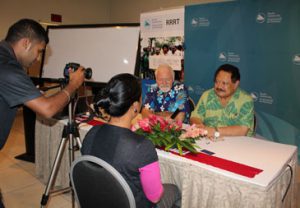
The forum highlighted the importance of building strong relationships between government communication personnel and journalists in sharing and disseminating information.
An outcomes document will be presented in poster format for newsrooms in the region, providing practical tips for “rights-based reporting”.
“Human rights-oriented journalism is more focused on global instead of selective reporting, with an emphasis on the vulnerable and empowerment for the affected and marginalised people – a voice for the voiceless,” Professor David Robie, journalist, author and director of the Auckland University of Technology (AUT) Pacific Media Centre, told participants at the opening of the forum.
Dr Robie is author of Don’t Spoil My Beautiful Face: Media, Mayhem and Human Rights in the Pacific.
Marian Kupu of Broadcom Broadcasting in Tonga said: “I found the three-day forum very encouraging because I have learnt about my country’s human rights commitments and I see my role as a journalist to report on the gaps to encourage decision-makers to prioritise and address the issues.”
The forum was organised by the Regional Rights Resource Team (RRRT) of the Pacific Community (SPC) in partnership with the Pacific Media Assistance Scheme (PACMAS), the Pacific Islands News Association (PINA) and the University of the South Pacific (USP) Journalism.
The three-day forum has strengthened media capacity in “rights-based reporting” to reflect the aspirations of Pacific island communities for equality, development and social justice, said SPC’s team leader of RRRT, Nicol Cave.
Some participants also watched the feature film Balibo about the murder by Indonesian soldiers of the Balibo 5 journalists and Roger East who went to East Timor to investigate their deaths in 1975.



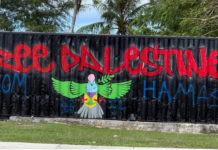


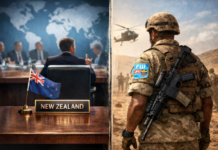





















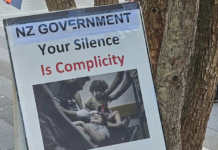
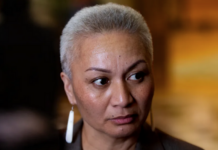

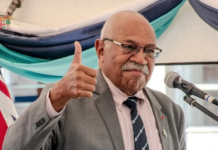














[…] RIGHTS AND MEDIA FORUMHuman rights violations blamed on silence and ‘looking the other way’Pacific journalists make human rights for the ‘voiceless’Regional Rights Resource Team (RRRT)Reporters urged to be gender sensitive‘Tell the truth’ about […]
[…] RIGHTS AND MEDIA FORUMHuman rights violations blamed on silence and ‘looking the other way’Pacific journalists make human rights for the ‘voiceless’Regional Rights Resource Team (RRRT)Reporters urged to be gender […]
Comments are closed.